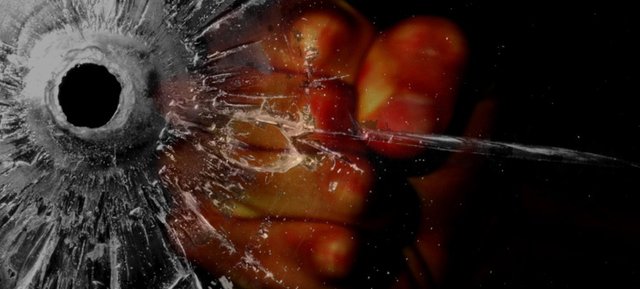Would You Agree To Be Called Warlike?
Would You Agree To Be Called Warlike?

Image Source
There are political philosophers and psychologists accepted that civilization and government moderately affect what they saw as individuals' warlike and merciless impulses. Pop-culture portrayals of human sources, similar to the principal scenes of the film 2001: A Space Odyssey or the outlines in youngsters' books of hyper-masculine cave dwellers doing combating mammoths and sabertooth tigers, give a photo that can be as persuading as memory: early humans needed to battle each other and even fight nature to survive. However, in the event that early human life had been as bleeding and warlike as our folklore has portrayed it, humans would basically have vanished.
Any species with a conceptive cycle of 15–20 years that normally just deliver one offspring at any given moment essentially can't survive if their possibility for kicking the bucket in any given year is more than a couple percent. It would have been mathematically unimaginable for Homo sapiens to have survived that nonexistent fight against nature and against each other. Anarchists have since quite a while ago charged that war is a result of the state. Some anthropological research has delivered records of peaceful stateless societies, and of warfare among other stateless societies that was minimal more than a harsh game with couple of setbacks.
Normally, the state has discovered its protectors, who have embarked to demonstrate that war is in fact unavoidable and hence not the blame of particular oppressive social structures. In one fantastic examination, War Before Civilization, Lawrence Keeley demonstrated that of a broad specimen of stateless societies, a vast number had occupied with forceful warfare, and an extraordinary lion's share had drawn in any event in guarded warfare. Just a little minority had never experienced war, and a couple of fled their countries to stay away from war. Keeley was attempting to demonstrate that individuals are warlike, despite the fact that his outcomes showed that individuals could look over an extensive variety of practices including being warlike, evading war yet at the same time protecting against aggression, not knowing war by any means, and disliking war so much they would escape their country rather than battle.

Image Source
Violence surely existed before the state, yet the state created warfare and mastery to extraordinary levels. As one of its extraordinary defenders called attention to, "war is the health of the state." It is no mistake that the institutions of energy in our civilization — media, the scholarly community, government, religions — have misrepresented the commonness of war and understated the likelihood for peace. These institutions are put resources into continuous wars and occupations; they profit from them, and endeavors to make a more peaceful society debilitate their existence.
The Catholic Worker development started in the United States in 1933 as a reaction to the considerable depression, yet today a hefty portion of the 185 Catholic Worker people group all through North America and Europe concentrate on restricting the militarism of the government and making the establishments of a peaceful society. Indistinguishable from their restriction to war is their sense of duty regarding social equity, which shows in the soup kitchens, covers, and other administration ventures to enable the poor that to frame a piece of each Catholic Worker house. Albeit Christian, the Catholic Workers for the most part reprimand church pecking order and advance resistance of other religions.
They are additionally anti-capitalist, lecturing intentional neediness and distributist communitarianism; independence through farming, crafting, and fitting innovation; a fundamentally new society where individuals will depend on the products of their own drudge and work; relationship of commonality, and a feeling of decency to determine clashes. Some Catholic Workers even call themselves Christian Anarchists. Catholic Worker people group, which work as cooperatives or help habitats for poor people, often give a base to dissents and direct activities against the military.

Image Source

In my understanding war can be found both at an individual and a large scale (nations,communities,etc)
Some people tend to believe that war steps in when verbal communication has failed and the two sides resolve into violent actions to solve the problem. But what happens when one side purposely wages war only to benefit from it? When one side consciously decides to destroy the other simply because they would not tolerate the existence of them.
People generally try to avoid situations that would get them killed or have a high propability of hurting someone they care about. That comes with our genes and the survival instict. So how can you make someone do something that goes against his biological warnings? By exploiting the human cognition ofcourse. By making someone believe in the narrative of some else's POV and therefore bypassing his biological urge for survival. That is how we can see the famous verse 'In peace sons bury their fathers, in war fathers bury their sons' take place.
There have been many historical events with both of the mentioned situations. But all share the same thing: common belief in a purpose, whether that is related to personal or group benefits. The belief that we should fight with them because we are right, better, stronger etc. The last words have been the bread and butter of various famous Leaders throughout the human history. The tools that have been used to actually convince a large group of people that there can be a objective and fair comparison between them and another group of people usually resulting into the violent surpression of one from the other.
So, is war just another human invention, or we are bound to inevitable conflicts?
Impressive thoughts. Regarding your question, I believe we are bound to inevitable conflicts because we are created with different heart and minds.
You got my vote and a resteem :)